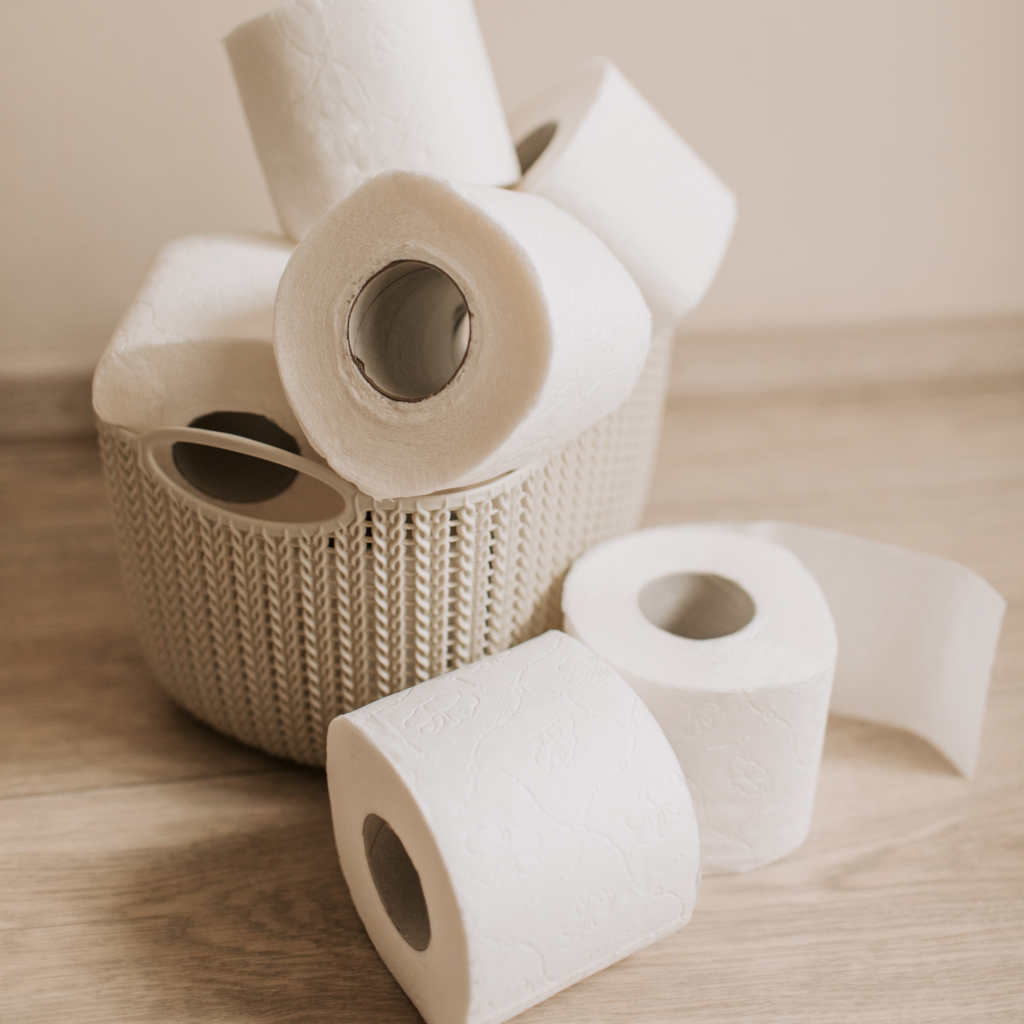Talking about bowel movements is a healthy thing. How else would you know if what you’re experiencing is abnormal? Exactly, so let’s talk about bowel movements!

I know, I know. It’s an awkward topic to discuss, but it’s an absolutely NECESSARY topic to discuss. There are 3 ways to assess an individual’s current nutrition status: blood, bowel movements (which is why this is an important conversation), and urine. With that being said, as a Registered Dietitian, I have the pleasure of talking about bowel movements regularly. There’s no shame on my end and there should be none on your end. So, let’s talk about bowel movements!
The Different Types of Bowel Movements
Regular Bowel Movements
The truth is there is no regular. Everyone is different, but having a bowel movement every 1-3 days is the most accurate definition of what a “regular” bowel movement is.
Diarrhea
Having a bowel movement that is mainly liquid with no solid pieces. Diarrhea can be triggered for several reasons: intolerance to a food item consumed, food poisoning, infection in the body, or if you’re experiencing high levels of anxiety or stress. If you’ve had diarrhea for 3 or more days, contact your physician, you may need to take some tests to figure out what is going on inside your body and receive the appropriate treatment. Make sure that you are drinking at least 64 oz. of water daily to avoid dehydration. Not only do you need to replenish the excess liquid you are losing due to diarrhea but you need to replenish lost electrolytes as well. A great way to do this is to drink Pedialyte or gatorade.
Constipation
If you have not had a bowel movement for 3 or more days, this qualifies as constipation. Before you reach for a laxative or a stool softener, consider a natural way first. Here are some ways you can relieve constipation:
- Increase your fiber (females need 25g/day and males need 38g/day) and water intake (at least 4 water bottles or 64 oz. per day). Increasing your fiber intake without adequate amounts of water will only cause gas and abdominal cramping. You need water for bowel formation and as a lubricant for bowels to move through your intestines. So do yourself and everyone around you a favor and drink that water! 😉
- If that doesn’t help, try taking digestive enzymes 30 minutes before each meal to aid in digestion and see if that helps to pass any bowels.
- If there is still no relief, I recommend trying a tea that contains senna (Smooth Moves is a good brand) or a senna supplement. Senna is an herb that acts as a natural laxative. Just note that after you drink the tea or take the supplement a bowel movement can occur up to 6-12 hours later, plan your life accordingly.
- If none of the above options work for you, go ahead and try a laxative or stool softener. Just make sure to not make this a long-term solution for your constipation. It can do more harm than good with long-term use. Schedule an appointment with a Dietitian if this is a reoccurring problem for you. Make sure to drink plenty of water after taking a laxative to avoid dehydration.
Blood in Your Stool
If you see blood in the toilet after having a bowel movement, contact your physician immediately. This in not normal and needs to be tended to.

Shape and Color of Bowel Movements
Not only is frequency important, but shape and color are just as important. An ideal bowel movement is brown in color, smooth and banana shaped. If your bowel movements don’t look like this, refer to the chart below and read the recommendations next to the description of what your bowel movements look like. I use this chart regularly because it’s a lighthearted way to discuss bowel movements and gives great insight. Give it a look!
Continuous Abdominal Cramping, Bloating, Diarrhea, and/or Constipation
Lastly, if you’re experiencing abdominal cramping and/or diarrhea symptoms for an extended period of time (weeks to months), go see your Doctor and a Registered Dietitian. Once again, this can be a reflection of infection in the body or if experienced more long term – IBS or IBD. If you have been diagnosed with IBS or IBD, seeing an RD that specializes in gastroenterology is essential to achieving regular bowel movements again – often times solely taking medication does not solve all of your problems.

These are just the basics, but I hope this helps give you more insight on your body and your bowel movements. If you need further assistance, feel free to reach out to me and let’s talk about bowel movements.


Leave a Reply